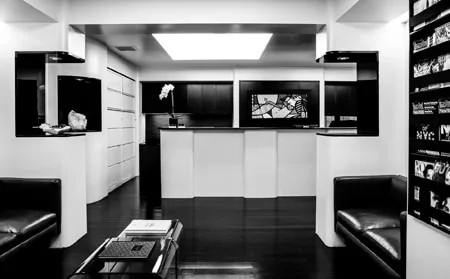
Women seek breast augmentation in Manhattan for various reasons: to restore breast volume and firmness lost due to weight loss, pregnancy, aging, or other reasons or to correct breast asymmetry. Performed using FDA-approved saline or silicone implants, the procedure enhances breast volume and contour. By improving their figure and overall proportions, it boosts a woman’s confidence and body image. Hundreds of thousands of patients opt to have breast augmentation surgery every year and report no adverse effects. The American Society of Plastic Surgeons (ASPS) reported that it was the most frequently performed procedure in 2018. However, this popular procedure is not without its concerns. One question that many patients ask is whether augmentation of the breasts will affect nipple sensitivity.
Changes in nipple sensation – feeling less sensation or more sensation in one or both nipples – are very common after breast augmentation or breast surgeries of any kind and depend on how the nerves were affected during surgery. Usually, changes in nipple sensation are temporary, lasting from a matter of weeks to a few years. Several factors, such as breast shape and surgery type also plays a role in how your breasts and nipples will feel after breast implant surgery:
- Implant size: A large breast implant placed in a small body frame could pull out the nerves in the breasts and cause the nipples to lose their sensitivity. Moreover, if you don’t have sufficient natural breast tissue, the surgeons will find it difficult to provide optimal results for the procedure. To be on the safe side, choose an implant size that’s right for your body type. The implant should have a smaller diameter than your breast.
- Incision: An incision made across or around the dark area around your nipples carries the highest risk of loss of nipple sensation as it can cause nerve damage in this area. This type of incision can also damage and injure nerves in milk ducts and affect breastfeeding. Your surgeon will discuss the incision type with you and will recommend the option that’s appropriate for you.
- Placement: Implant location is also an important factor that can affect nipple sensitivity. Breast implants may be inserted under the chest muscles or between the chest muscles and the breast tissues. Implants placed above the muscle, but under the milk glands, have a greater risk of sensation loss. Placing breast implants under the muscles can avoid damage to your nerves and also camouflage the feel of the implant. Discuss these options with your plastic surgeon at the consultation.
The surgeon’s choice of technique plays a key role in the patient’s postoperative nipple sensitivity. The best breast augmentation surgeons take care to protect important nerves that connect to the nipple. This includes recommending a breast implant size that is appropriate for your body type and frame. Breast implants that are too large for your body can stretch your skin and damage the nerves, and affect sensation in the breast/nipples.
While some women have lasting loss of sensation, in most of the patients, loss of sensitivity lasts only for a short time. Reliable surgeons inform their patients that it may take a few weeks or even several months to regain all of the sensation in the breasts or nipples. By the time you heal completely, your sensitivity should be restored. In some cases, patients may need to wait a full year as the nerves may need time to regenerate. Regular self-massage of the nipples and breast tissue (as recommended by your surgeon) can speed return of nipple sensation post-op.
If you are considering breast augmentation in Manhattan, choose an expert. In AAASF-accredited plastic surgery centers, the procedure is performed by plastic surgeons who are skilled and trained in the procedure. They can provide natural-looking breast augmentation results that will enhance your overall appearance.
